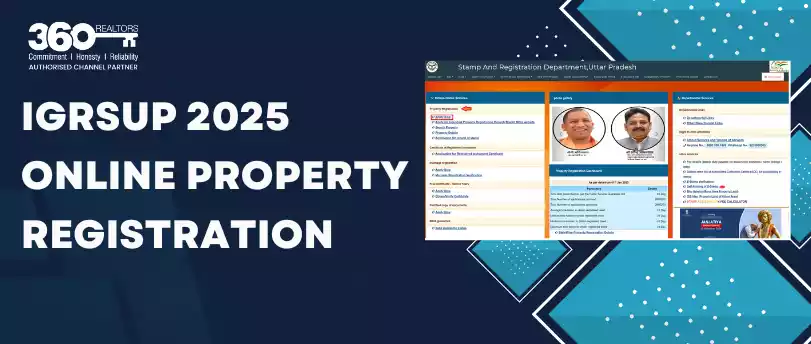Buying a property is a major decision of life, however with easy availability of finance, attractive housing schemes and high disposable income of young Indians investing in property has become much easier. Moreover there are a lot of tools available to the buyers, to understand their financial capability and take a loan accordingly.
The Indian Government is also aiding towards the revival of the real estate market and has passed the Real Estate Regulator Bill, which has made housing loans less of a burden for first time home buyers. Under the bill, if a project is delayed buyers will be protected as developers will have to pay back the home loan EMI interest of the buyer.
The Indian real estate market is on the turnaround and it is an ideal time for first time home buyers to invest. The market is growing at an unprecedented rate and buyers have a lot of option to buy property. However buyers must do all due diligence before investing in a property, and understand their own financial strength before investing in a property. Here is our guide to buy property in India for first time home buyers.
Budget: For first time home buyers it is essential to understand their financial strength and budget. You must be clear about how much money you will have each month to meet your expenses. Home buyers must have a clear idea about their budget and how much can they pay towards their home loans. Your budget for buying a home should be based on your household budget and a review of your monthly financial obligations. As prospective home buyers, it is very important to take care that you current family requirements gets satisfied first and the long term can be taken care of later. The financial experts suggest that 4-5 emi’s should be kept aside safely for help in times of any types of unforeseen situations like loss of job or extra monthly expenditure due to illness etc.
Location: The Location of a home is very important, and can make all the difference in the long term returns on your property. It is beneficial to buy a property that is adjacent to a prime location, if the price is within your budget. Having a property in a prime location will give better returns in the long run and give you better resale value. Property buyers sometimes focus solely on the location or budget, however they must consider the right location as well as value of property in the long run before making an investment. A high growth area with potential for growth and subsequent capital gains and proximity to educational institutions, malls, hospitals, etc or future planned development could have positive effect on the worth of the property.
Home Loan: There are various kinds of home loans available to property buyers, and you must choose the one that suits your financial needs completely. A First time home buyer must understand the type of home loans and choose the one that suits them. We will help you understand the type of home loans available to you. Home loan eligibility is calculated on the basis of parameters like the source of income, repayment capacity, earning members, other financial obligations and age of the loan applicant.
1. Home Equity Loans
2. Home Purchase Loans
3. Home Extension Loans
4. Land Purchase Loans
Property Insurance: Property Insurance is another step to protect your major investment of life against all sorts of damages that can happen to your property in future. It provides coverage to your property in case of any legal issues, or problems against property title at a comparatively low cost. There are different types of home insurance policies available with different levels of protection, so it becomes important to choose the right insurance policy that will make your home buying experience overall enjoyable.
Tax Planning: It is a legal exercise and should not be misunderstood with tax evasion or tax avoidance. You should be aware of your tax benefits under home loans. As per the Income Tax Act, 1961, an Indian resident can claim tax benefits on both the principal and interest components of a housing loan. One can even purchase the property in joint names like in case of married couples. Thus it is very important to know about your home loan and the subsequent tax benefits available on it.
Additional Costs: You need to take into consideration all the additional expenses like fees or commission charged by the real estate agents, or brokers, land surveyor, home inspector, notary etc. Other monthly expenses like the maintenance charges, car parking whether included or need to be paid separately shall also be taken into account.
Stamp Duty and Registration Fees: Another important expense or tax that is collected by the government just like income tax or sales tax is the Stamp Duty and the Registration Fees. Stamp duty is payable of property transfers and normally varies from 4-8% depending upon the location of the property. A registration fee is around 1% of the property value and again varies as per the location of the property. The legal fee is normally 1.5% of the property value. So while making a budget to buy property it is important to know the market value of your property and calculate all these rates and charges applicable on it as per the zone and sub zone of the property.
Research about Developers: Before making a final purchase of the property it is important to look into the market reputation and understanding of the developer. There are tons of questions that need to be inquired about the builder, about his past projects, his quality of constructions, and appreciation in value, current market demand and the number of projects in hand for future. The more you talk with your builder, the more satisfied you will feel at the end of the project. One can even have a look at the copy of the project’s drawings duly signed by the municipal authorities just to have an idea about the honesty of the work in progress.
Difference between built up, sq. feet and super built up area: While purchasing an apartment or a property it is very important that the homebuyer is clear on the difference between carpet area, sq ft and super built up area. The space available for flooring a carpet is what is called the carpet area. The carpet area inclusive of the wall, balcony and other areas is called the super built up area and the super built plus the corridor space is called the super built up area. This area also includes common use spaces like lifts, stairs and lobby. Hence this difference of space between the super-built up and carpet area is known as loading. So while buying a house, it is important that you pay for the carpet area and not for the super built up area.
Legal Advice: It is very important to take legal advice and prepare an agreement be it purchase, construction, buying or selling, lease or property. Since the property rates keep on increasing, one has to very clear about the laws that govern the real estate investment and taking legal advice in all the matters is a wise decision.
Allotment Letter: So once the property is selected and the initial payment is made , the builder gives you an allotment letter which has all the details regarding your property purchased like the flat number, price, area, payments details, extra charges paid by you if any, in case of club fees, parking charges, maintenance charges etc. In case you have any preferences for a certain floor or view then it should be informed at the time of initial application only because once the allotment letters are handed over, there are very little possibilities of any further changes.
Verification of all Legal Documents: For a sale to complete there are several documents that are handed over to the buyer like sale agreement, sanction plans, society documents and encumbrance certificates etc. It becomes the responsibility of the buyers to get all these documents legally verified and duly signed.
Possession and Registration: this is the final step for the completion of any purchase process. The possession is the physical transfer of the property by getting the property registered in the buyer’s name with any local authority and the seller documenting the same. For this the stamp duty needs to be paid at the time of registration.
Formation of Housing Society: The developer forms a housing society and creates a bank account in the name of the same and transfers the money still unused in that particular bank account. The society further elects its representative who is responsible for collection of the maintenance charges and the upkeep of the building.
Got any questions regarding financing a property ? Feel free to contact us or leave a comment below.






